Concepts: Where Cognitive Science Went Wrong

Summary
Oxford Cognitive Science Series General Martin Davies, Wilde Reader in Mental Philosophy, University of Oxford, UK, James Higginbotham , Professor of General Linguistics, University of Oxford, UK, John O'Keefe, Professor of Cognitive Neuroscience, University College, London, UK, Christopher Peacocke, Waynflete Professor of Metaphysical Philosophy, University of Oxford, UK, and Kim Plunkett, University Lecturer in Psychology, University of Oxford, UK The Oxford Cognitive Science series is a forum for the best contemporary work in this flourishing field, where various disciplines―cognitive psychology, philosophy, linguistics, cognitive neuroscience, and computational theory―join forces in the investigation of thought, awareness, understanding, and associated workings of the mind. Each book will represent an original contribution to its subject, but will be accessible beyond the ranks of specialists, so as to reach a broad interdisciplinary readership. The series will be carefully shaped and steered by the general editors, with the aim of representing the most important developments in the field and bringing together its constituent disciplines. About this book The renowned philosopher Jerry Fodor, who has been a leading figure in the study of the mind for more than twenty years, presents a strikingly original theory of the basic constituents of thought. He suggests that the heart of a cognitive science is its theory of concepts, and that cognitive scientists have gone badly wrong in many areas because their assumptions about concepts have been seriously mistaken. Fodor argues compellingly for an atomistic theory of concepts, deals out witty and pugnacious demolitions of the rival theories that have prevailed in recent years, and suggests that future work on human cognition should build upon new foundations. This lively, conversational, accessible book is the first volume in the Oxford Cognitive Science Series, where the best original work in this field will be presented to a broad readership. Concepts will fascinate anyone interested in contemporary work on mind and language. Cognitive science will never be the same again.
Similar Books
-
 History and systems of psychology
History and systems of psychologyby James F. Brennan
-
 History and Systems of Psychology
History and Systems of Psychologyby James F. Brennan
-
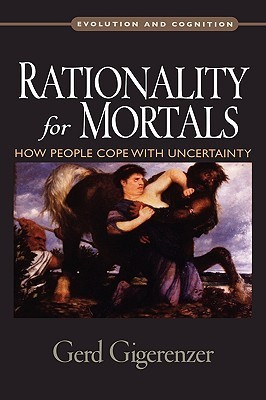 Rationality for Mortals: How People Cope with Uncertainty
Rationality for Mortals: How People Cope with Uncertaintyby Gerd Gigerenzer
-
 Alchemies of the Mind: Rationality and the Emotions
Alchemies of the Mind: Rationality and the Emotionsby Jon Elster
-
 The Cambridge Companion to Vygotsky
The Cambridge Companion to Vygotskyby Harry Daniels
-
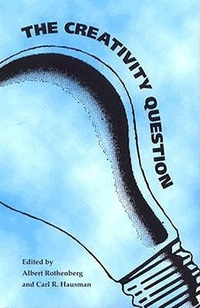 The Creativity Question
The Creativity Questionby Albert Rothenberg
-
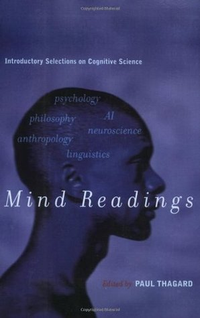 Mind Readings: Introductory Selections on Cognitive Science
Mind Readings: Introductory Selections on Cognitive Scienceby Paul Thagard
-
 The Oxford Handbook of Religion and Science
The Oxford Handbook of Religion and Scienceby Philip Clayton
-
 Our Knowledge of the Past: A Philosophy of Historiography
Our Knowledge of the Past: A Philosophy of Historiographyby Aviezer Tucker
-
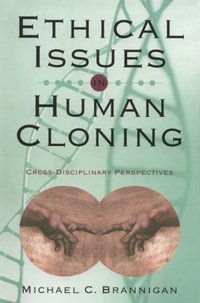 Ethical Issues in Human Cloning: Cross-Disciplinary Perspectives
Ethical Issues in Human Cloning: Cross-Disciplinary Perspectivesby Michael C. Brannigan
-
 Biology and Epistemology
Biology and Epistemologyby Richard Creath
-
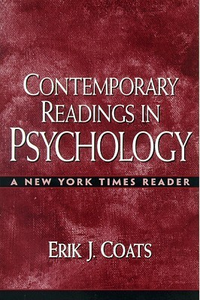 Contemporary Readings in Psychology: A New York Times Reader
Contemporary Readings in Psychology: A New York Times Readerby Erik J. Coats
-
 Sociology and Interpretation: From Weber to Habermas
Sociology and Interpretation: From Weber to Habermasby Charles A. Pressler
-
 Mindscapes: Philosophy, Science, and the Mind
Mindscapes: Philosophy, Science, and the Mindby Martin Carrier
-
 Humanbiotechnology as Social Challenge: An Interdisciplinary Introduction to Bioethics
Humanbiotechnology as Social Challenge: An Interdisciplinary Introduction to Bioethicsby Nikolaus Knoepffler
-
 Verstehen and Humane Understanding
Verstehen and Humane Understandingby Anthony O'Hear
-
 The Problem of Animal Generation in Early Modern Philosophy
The Problem of Animal Generation in Early Modern Philosophyby Justin E. H. Smith